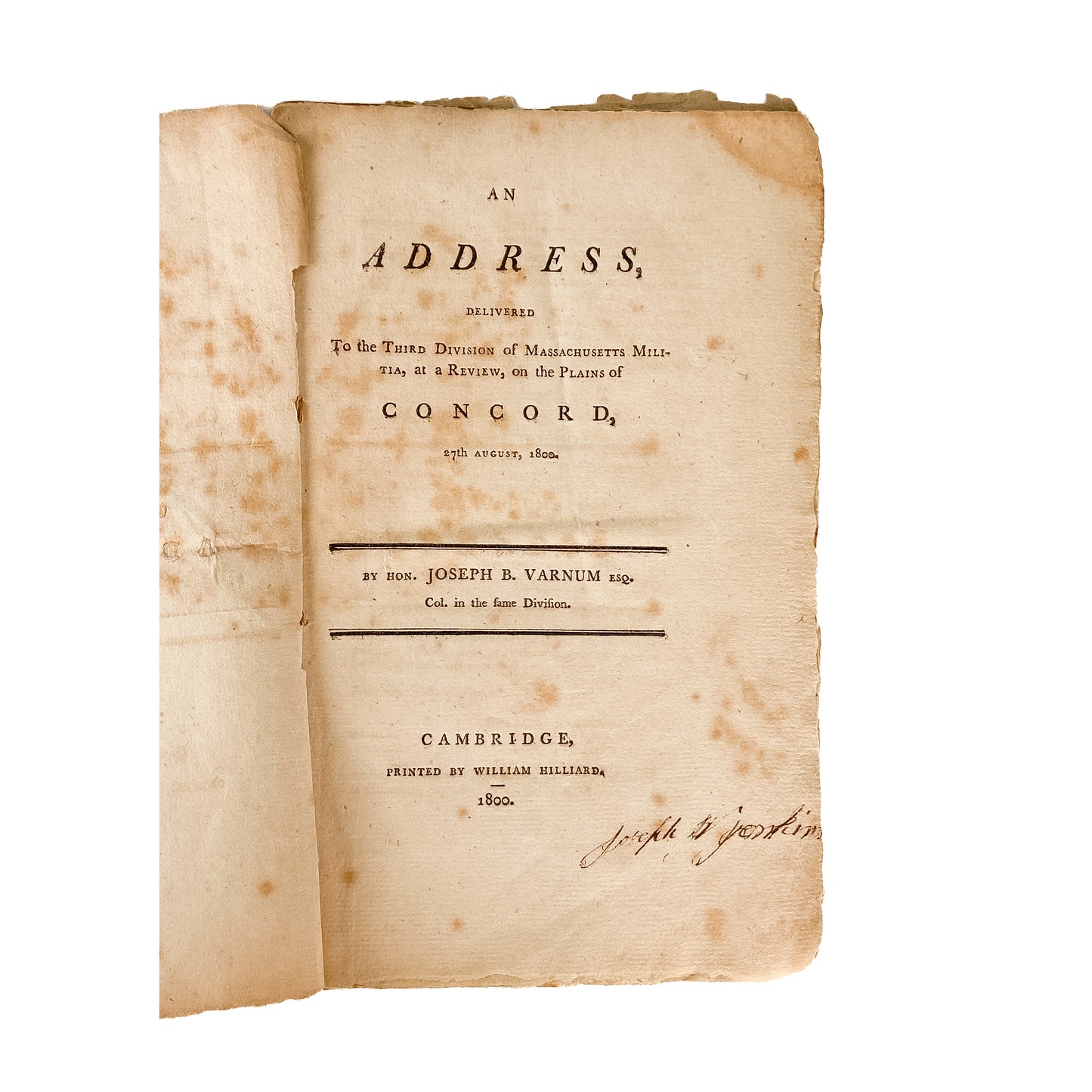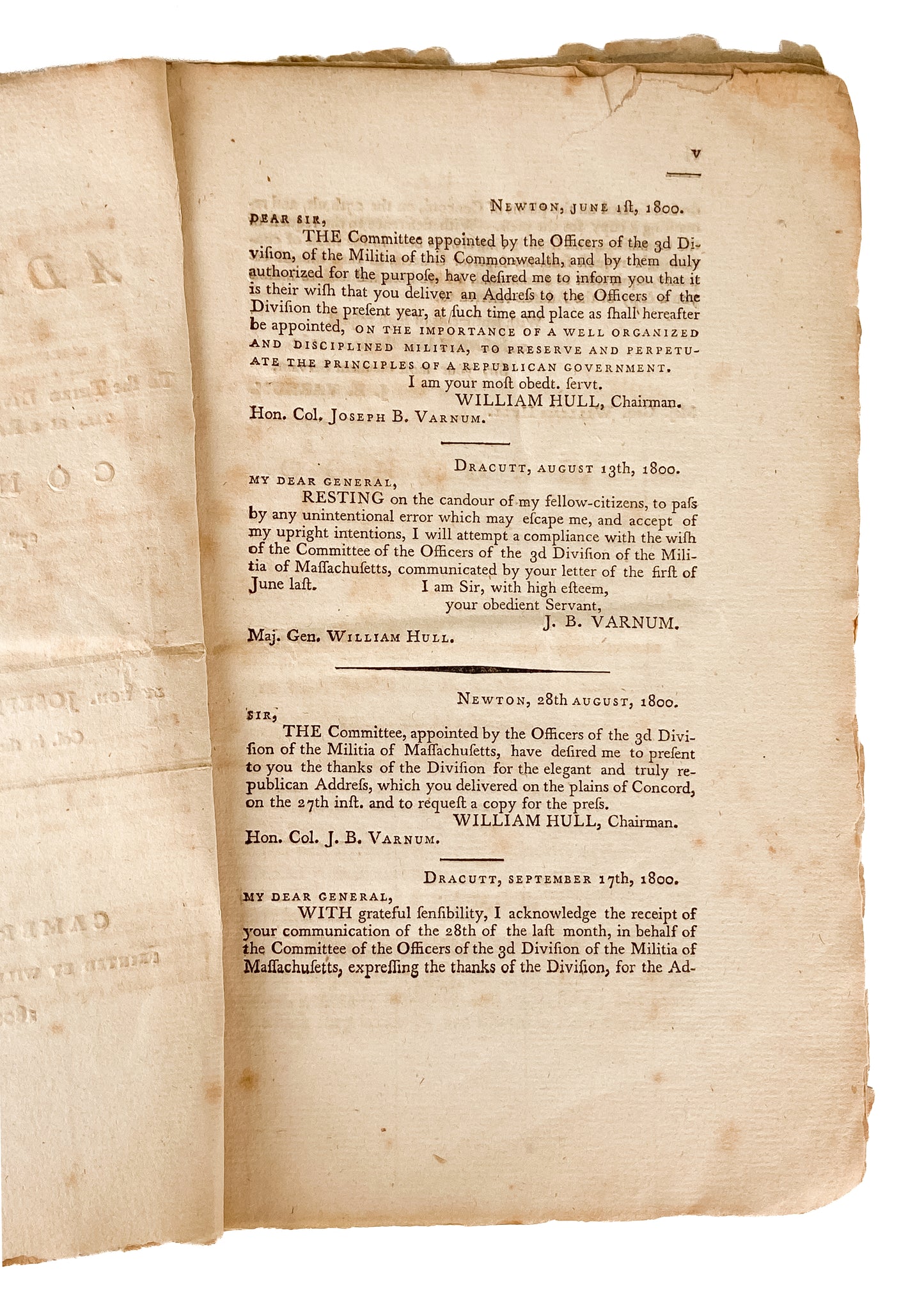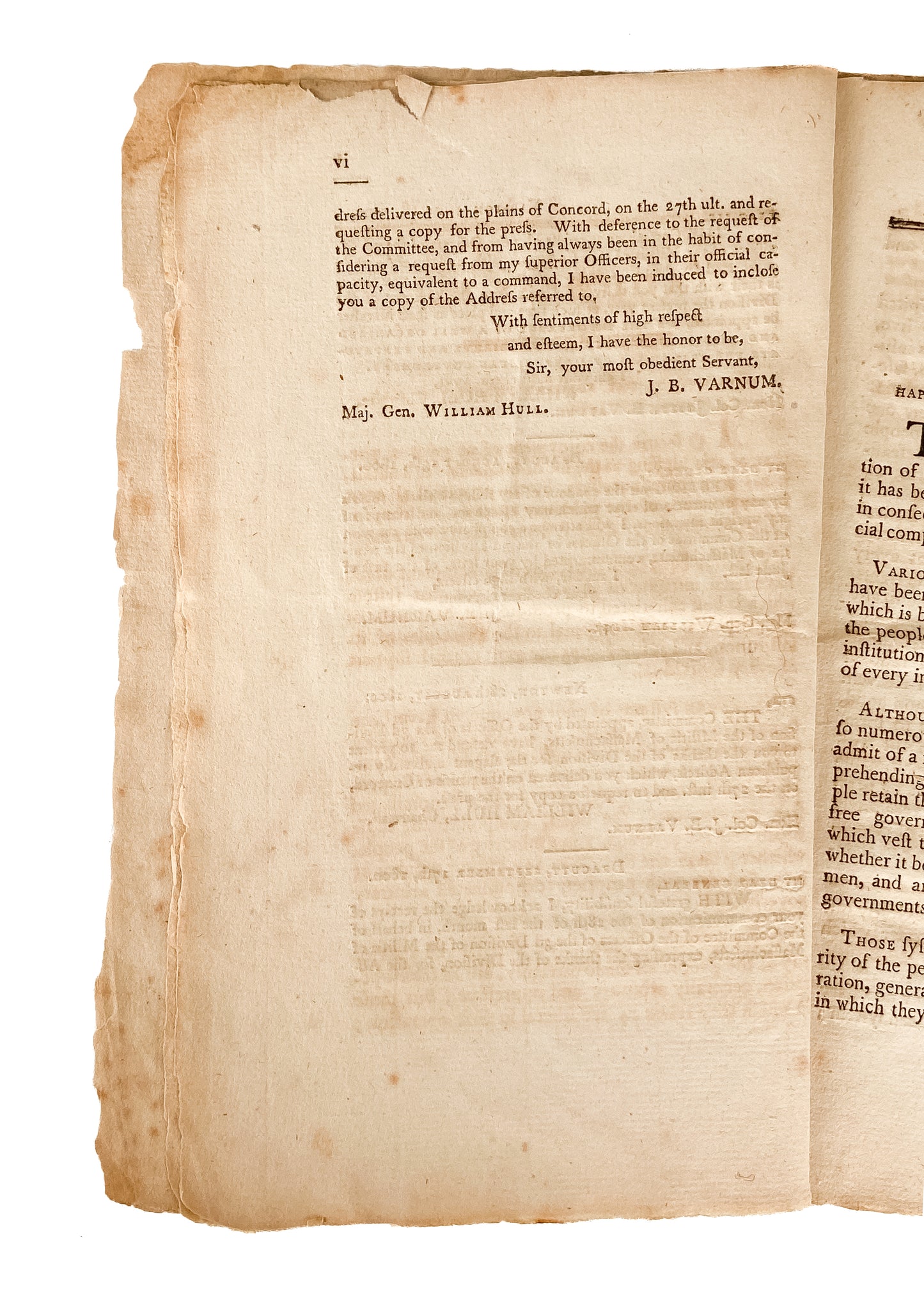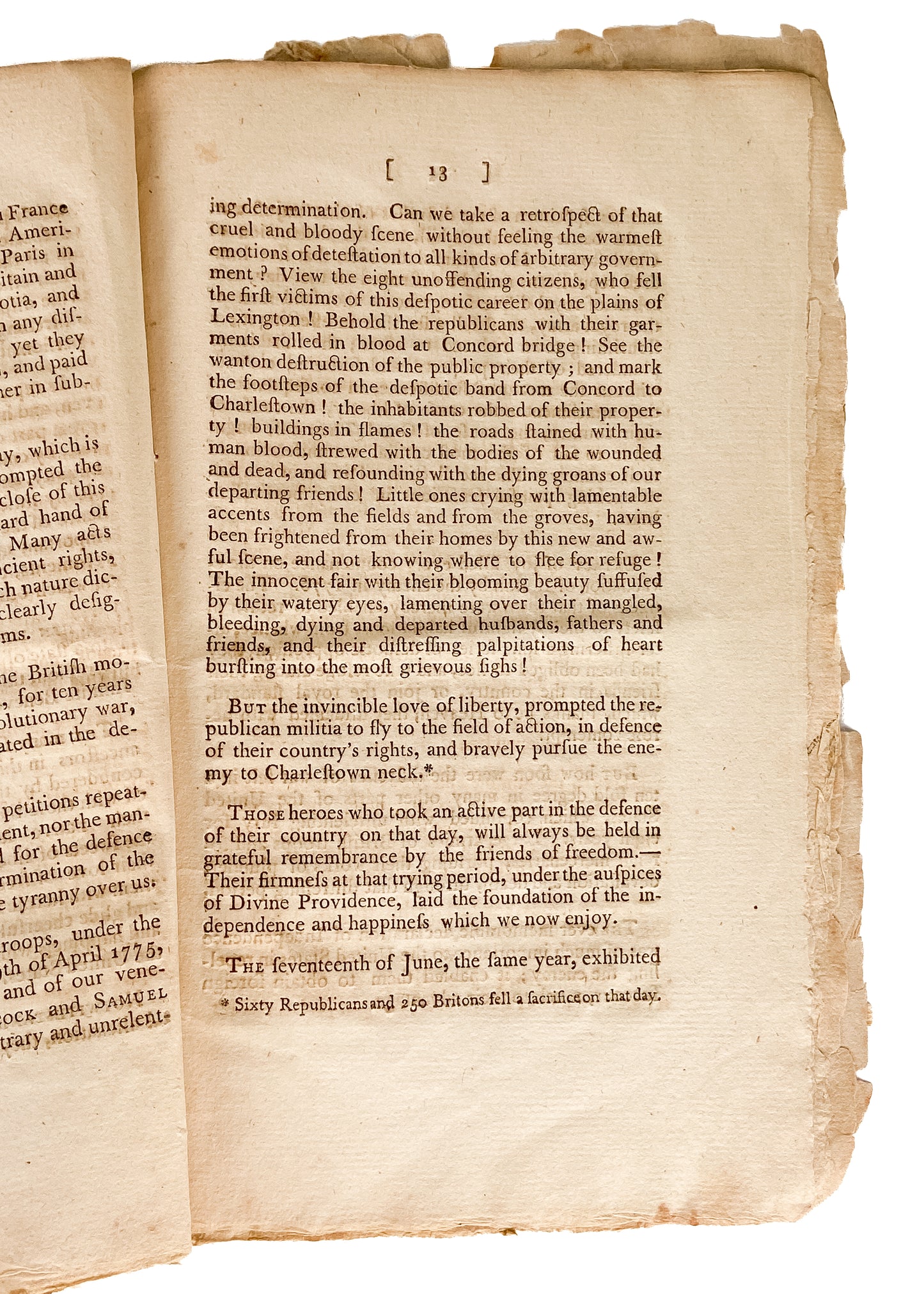Specs Fine Books
1800 COLONEL JOSEPH B. VARNUM. On Militias, Liberty, Educated Electorate, American Revolution, etc.
1800 COLONEL JOSEPH B. VARNUM. On Militias, Liberty, Educated Electorate, American Revolution, etc.
Couldn't load pickup availability
An important and rare discourse by the first successful abolitionist politician in Congress. He later crafted and pushed through the 1807 law abolishing the international slave trade in the United States.
A fascinating and rousingly pro-American discourse covering the "arbitrary and oppressive" nature of governments which divest a majority of the people of their sovereignty."
"The system of government established in the United States, under which we have the happiness to live, makes solemn declaration, that 'government is instituted for the common good; for the protection, safety, prosperity, and happiness of the people; and not for the profit, honor, or private interest of any one class of man, family, or class of men; therefore the people alone have an incontestible, unalienable, and indefeasible right to institute government; etc."
"Knowledge and virtue are indispensibly necessary for the formation and support of a republican system; but ignorance and vice are delicious food for despotism, and all kinds of arbitrary governments. Hence it will follow, that under arbitrary governments, the body of the people are frequently ignorant and vicious; but in republican governments supported in their purity, useful knowledge and virtue will prevail."
"Arbitrary governments are calculated to depress the mind of man, and render him useless in society; yea, ten thousand-fold worse than useless - for, the state of vassalage and depression in which they place him, drives him to a state of desperation, and he becomes a fit tool in the hand of despots, to butcher the human race, and spread devastation through the world. But an energetic republican government, like the glorious system established in the United States, is calculated to expand an ennoble the mind of man, and render him useful to society. It is opposed to all kinds of offensive war, but most admirably calculated to defend against every aggression. Being founded on the principles of civil and religious liberty, it is a favorite of benevolence, and a companion of philanthropy: Its primary qualities are calculated to promote the happiness of mankind, and the glory of their Creator."
We also have an early instance of the language of "theologized habitation and expansion" as well, "When most nations of the world had sunk into a state of degradation and misery, under despotic oppression, this American Canaan was pointed out by Infinite Benevolence, as an asylum for the oppressed. The many sufferings which were sustained by our ancestors in this wilderness and savage country, were considered by them as trivial burthens, when compared with those they had been compelled to endure in their native land; here they were blessed with the sweets of liberty, and the rights of conscience; their love of freedom, and zeal in religion, enabled them with heroic fortitude to surmount every obstacle and glide cheerfully on towards that meridian splendor and happiness which is now enjoyed by the people of the United States." This "new Israel" language was foundational to the Christian expansionist rationale, though this does not seem to be the mind of Varnum himself.
He goes on to discuss the insatiable thirst for power, the despotic ways, the tyrannical oppression, etc. of Great Britain, John Hancock, Samuel Adams, an invincible love of liberty, Bunker Hill, the destruction of Charlestown, the Declaration of Independence, the admirable balance of State and Federal rights and powers, plus an important section on the critical ongoing nature of "standing militias" at the State level.
"The man who would not defend the United States against the aggressions of the most favored foreign nation, at the risk of his life and property, is utterly unworthy of the privileges enjoyed by their citizens and ought immediately to be compelled to repair to that state of vassalage which his conduct justly merits."
Colonel Joseph Bradley Varnum [1750-1821] entered the Massachusetts Militia at the age of 18 and fought throughout the remainder of the American Revolution. After the War, he continued serving in the Militia and obtained the rank of Major General [1805]. He also served in the Massachusetts House of Representatives and in various other political roles.
Varnum is also considered one of the first vocal abolitionists in the political sphere. He argued for the prohibition of slavery in the Mississippi Territory as early as 1798. His anti-slavery position has roots in the Revolutionary War though. When he joined the Militia in 1777, so did a family slave named Silas Royal. They fought side by side during the war. Afterward, the family manumitted Silas.
By 1806, abolishing slavery was his cause, submitting the "Massachusetts Proposition" to amend the United States Constitution and Abolish the Slave Trade [a first move toward abolishing slavery altogether]. It was tabled until 1807, when it was passed under Varnum's leadership. Thoams Jefferson signed it into law in 1807 and it went into effect in 1808, becoming the first Federal anti-slavery piece of legislation in America.
Varnum, Colonel Joseph B[radley]. An Address Delivered to the Third Division of Massachusetts Militia at a Review, on the Plains of Concord, 27th August, 1800. Cambridge. Printed by William Hilliard. 1800. 26pp.
Fair to good - example with stains, foxing, early poke-stitching. Last leaf detached and torn, repaired with tape, and some light loss, not impacting legibility.
Share








